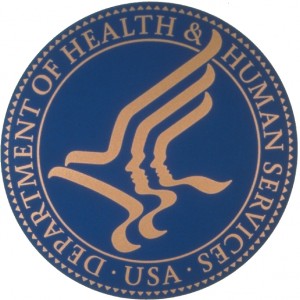HHS Birth Control Mandate Tied to NARAL, Planned Parenthood
 The medical committee behind the federal government’s impending mandate that insurers cover birth control without co-pay is populated by board members of NARAL and Planned Parenthood, as well as major donors to politicians favoring legal abortion.
The medical committee behind the federal government’s impending mandate that insurers cover birth control without co-pay is populated by board members of NARAL and Planned Parenthood, as well as major donors to politicians favoring legal abortion.
The pro-life organization HLI America says public records show the ideological roots of the Institute of Medicine (IOM) committee, which recommended virtually all private health insurers pay for FDA-approved contraception as essential “preventive care” under the new health care law, including drugs that can cause early abortions.
IOM, a non-governmental organization tapped by federal health officials to recommend the new guidelines, describes itself on its website as “provid[ing] unbiased and authoritative advice to decision makers.”
Among the 15-member IOM Committee on Preventive Services for Women are Claire Brindis, a member of the board of directors of the NARAL Pro-Choice America Foundation; Angela Diaz, former board member of Physicians for Reproductive Choice and Health; Paula A. Johnson, Chairwoman of the Planned Parenthood League of Massachusetts and upcoming recipient of NARAL’s 2011 “Champion for Choice” award; Magda G. Peck, the former board chairwoman of Planned Parenthood of Nebraska and Council Bluffs; and Alina Salganicoff, Vice President and DIrector of Women’s Health Policy at the Kaiser Family Foundation, which strongly favors abortion and contraception on demand.
HLI America also highlights committee members’ monetary contributions to pro-abortion candidates, including a $35,200 donation to Sen. Barbara Boxer (D-CA). One committee member, Linda Rosenstock, donated over $40,000 to pro-choice political candidates including Barack Obama, Hillary Clinton, Barbara Boxer, and the Democratic National Committee.
HLI America says the list is “by no means an exhaustive” exposition of the IOM committee’s left-leaning political bias, but that “these eleven members—out of a total of fifteen—demonstrate a more than casual commitment to the furthering of the abortion lobby.” The group also notes that records showed none of the members having donated to a candidate who opposed abortion.
The July IOM report not only favored contraception, but indicated that surgical abortion coverage would have been a viable candidate, had federal law not stood in the way.
“Despite the health and well-being benefits to some women, abortion services were considered to be outside of the project’s scope, given the restrictions contained in the ACA,” wrote the authors.
Less than two weeks after the report was released, HHS Secretary Kathleen Sebelius announced the implementation of “historic new guidelines that will ensure women receive preventive health services at no additional cost,” including birth control, starting August 2012.
The report’s ideological tack on birth control – IOM called the drug’s main benefit “the ability to plan one’s family and attain optimal birth spacing” – mirrored that of the Planned Parenthood Federation of America during its intensive nationwide campaign for the mandate. As the lone major force opposing Planned Parenthood’s campaign, the U.S. Conference of Catholic Bishops had criticized the idea of pregnancy as a disease remedied by “preventive medicine” and said the IOM report betrayed a strong ideological bias.
Dr. Anthony Lo Sasso, the lone member of the IOM committee dissenting from the report, concurred that the findings were tainted by advocacy goals.
“Troublingly, the process tended to result in a mix of objective and subjective determinations filtered through a lens of advocacy,” he wrote. “An abiding principle in the evaluation of the evidence and the recommendations put forth as a consequence should be transparency and strict objectivity, but the committee failed to demonstrate these principles in the report.”
Arland Nichols, the National Director of HLI America, noted that “nearly all of the invited speakers” at the committee’s three open information-gathering sessions were “known advocates of contraception and abortion on demand” – while no representative from the Catholic health care system, the largest health care provider in the United States, was sought.
“It is, perhaps, not surprising that political maneuvering and ideology have been obstacles to HHS’s purported goal of securing the health of the American people; we do not expect completely disinterested policymaking in our democracy,” wrote Nichols.
“What is surprising, however, is the audacity with which the committee circumvented professional research practices in order to arrive at the conclusions they held at the outset.”
[Go here for instructions from the bishops on how to fight this.]

